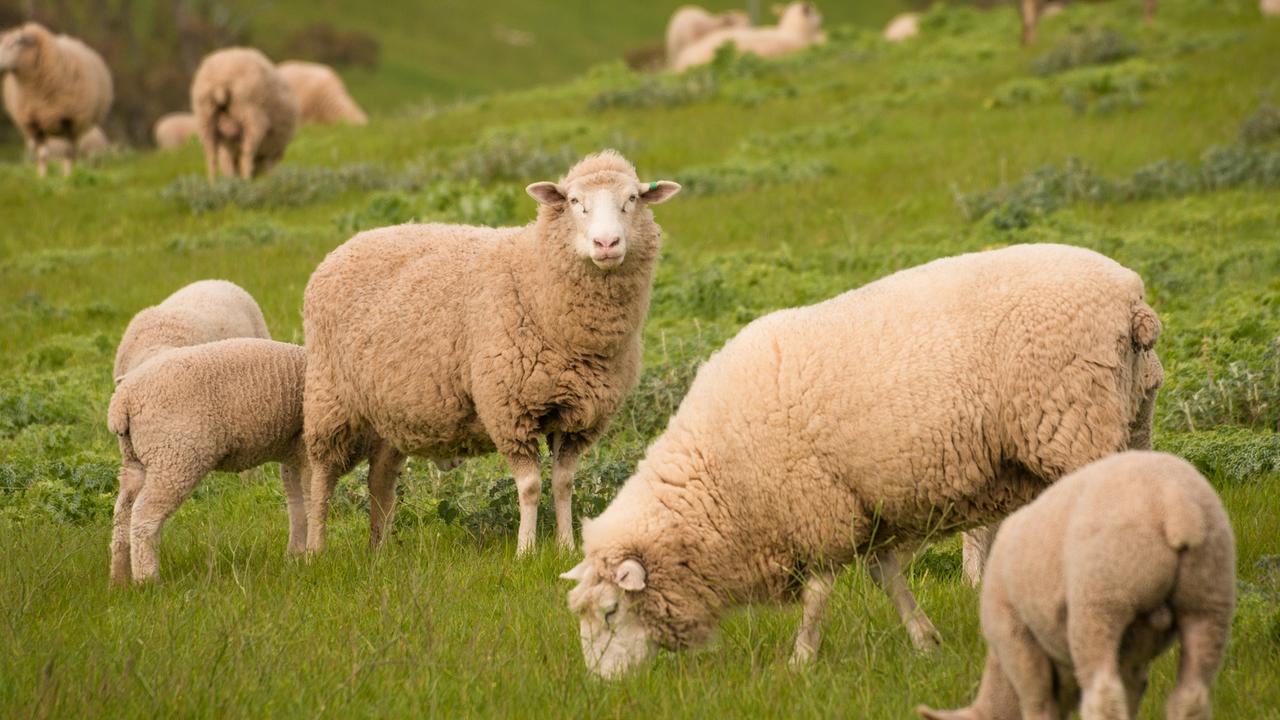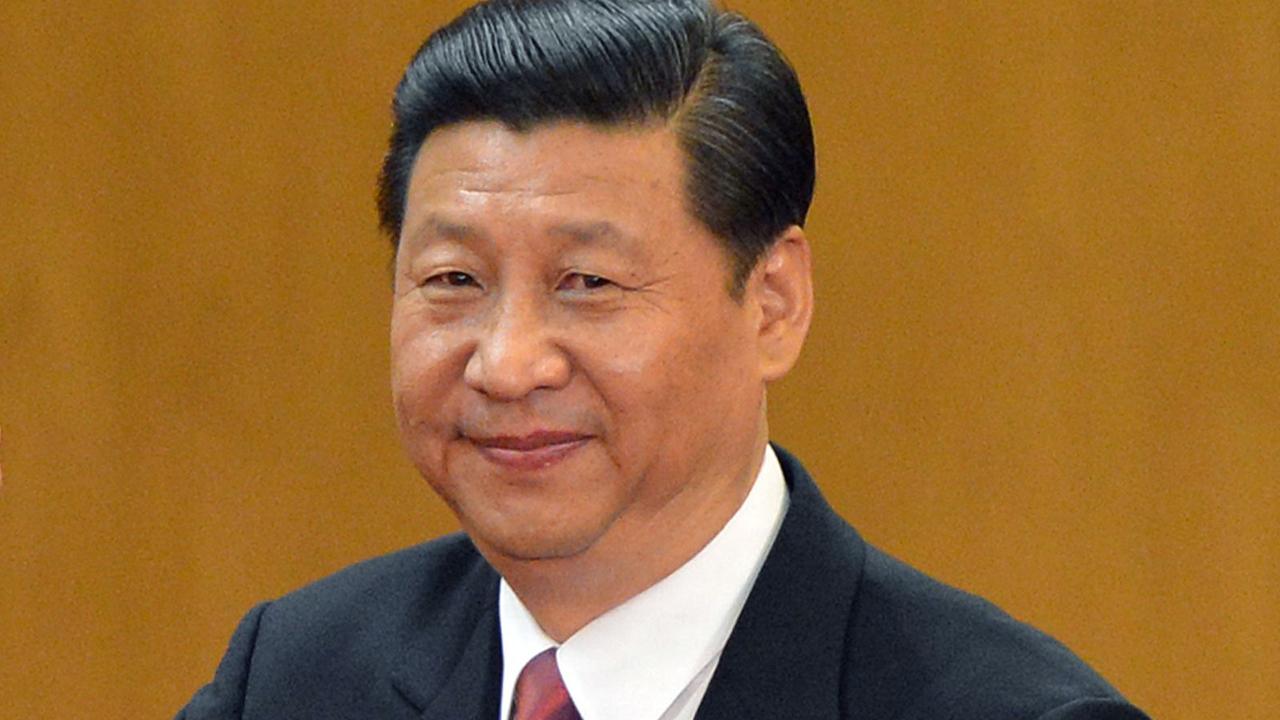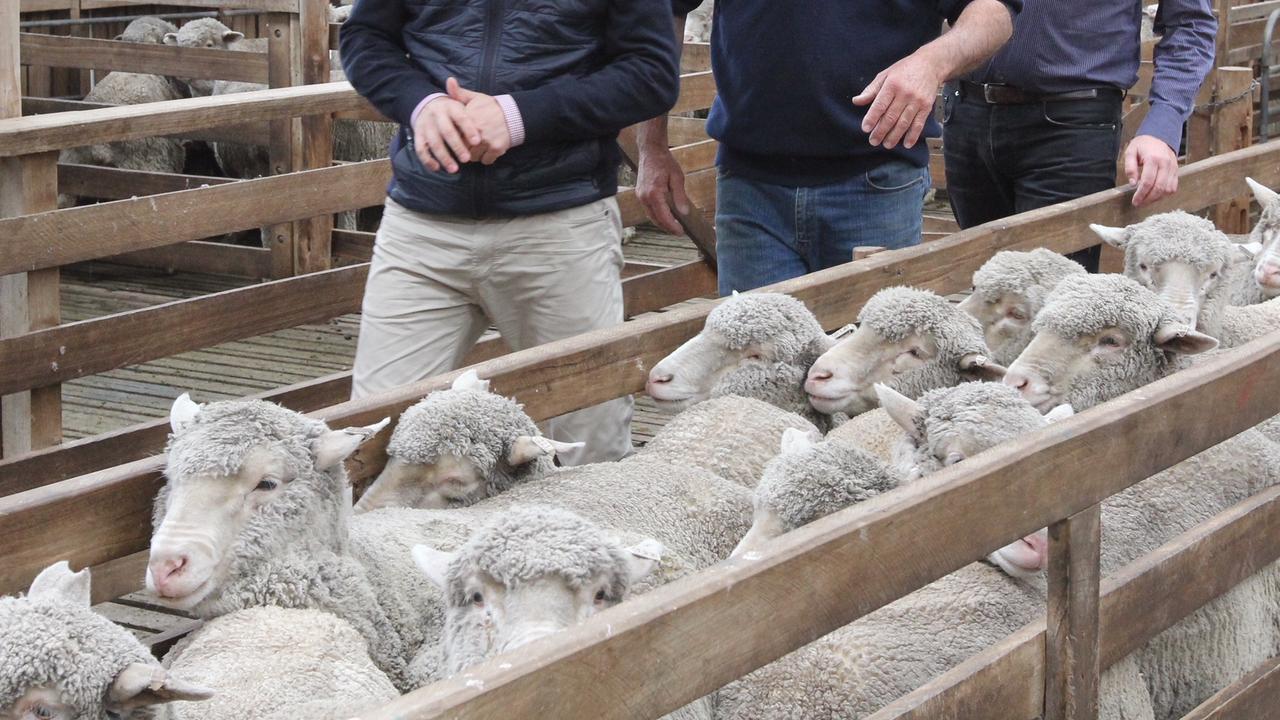China’s demand for Australian wool leaves sheep farmers rolling in cash
Our stoush with Beijing shows no sign of ending any time soon – but there’s a new Aussie product China seems to be obsessed with.
Some Australian farmers are ecstatic as China sets its sights on the wool industry.
Demand for wool has grown phenomenally in the past 20 years and especially so this year, buoyed by China’s removal of an import quota.
Data released by the Australian Bureau of Statistics shows that in the space of one month, Aussie farmers made an extra $48 million on wool, going from $297 million to $345 million in April to May.
Michell Wool has wool processing factories in China and Australia and CEO Steven Reed told news.com.au its factory was “flat-out, operating 24 hours a day, seven days a week”.
Mr Reed, who has been to China around 100 times, said the communist nation was “buying more (wool) in raw numbers than ever before”.
China is purchasing around 90 per cent of Australia’s wool exports. Behind China, Europe, South Korea and India are Australia’s biggest buyers.
In January, China’s Ministry of Commerce scrapped its import quota on Australian wool, so it can now buy 38,288 tonnes in 2021 rather than just 36,465 tonnes as it did last year.
China’s duty-free wool quota for Australia will rise by five per cent each year until it reaches 44,324 tonnes by 2024.
RELATED: Billionaire blasts his way into space

RELATED: Aussie’s $4.8 million idea to change the world
Mr Reed said that wool was the new iron ore in the sense that “Australia is the dominant producer and China is the dominant consumer” of both.
However, he said other than that, there were not many “parallels” between the two industries.
In May, China vowed to bring down the cost of iron ore, after claiming Australia was “profiteering” off excessive prices.
However, the move backfired spectacularly by leading to a record-breaking $149 billion boom late last month.
The wool industry has so far been spared from getting caught in the crossfire of the trade war between the two nations.

Of the wool China buys from Australia, they keep 50 per cent of it for themselves.
The rest is shipped off to the northern hemisphere, mostly to European nations and the US.
Robert McBride, director of the Australian Wool Growers Association, said that the rain, a desire for sustainability and fairer prices was also to thank for wool’s lucrative nature, as well as China.
“Demand is certainty ticking up,” he told news.com.au.
“China has been buying more wool than ever before.”
Mr McBride has been a wool farmer for his family-run company AJ & PA McBride for 30 years and said he’s never seen such high levels of demand.

Mr McBride said consumers’ desire for longevity items had made wool more popular than cotton recently.
“The average woollen product lasts in the vicinity of 20 and 30 years,” he said.
“The average cotton product, on average you’ll wash four times, you’ll hold it for six months and then it will go into landfill.”
There are around 67 million sheep in Australia, according to him, and the average sheep produces about 6kg of wool a year.
If you do the maths, that’s a lot of wool.
“We are seeing it through the sign of the prices; they’re starting to recover,” Mr McBride said.
“It’s now $13-$15 per kilogram of wool.
“In the 2000s (that was) selling for $7.”
Mr McBride’s company has 12 properties with 350,000-400,000 sheep between them.
They’ve been buying more property and sheep to keep up with demand over the past several years.



